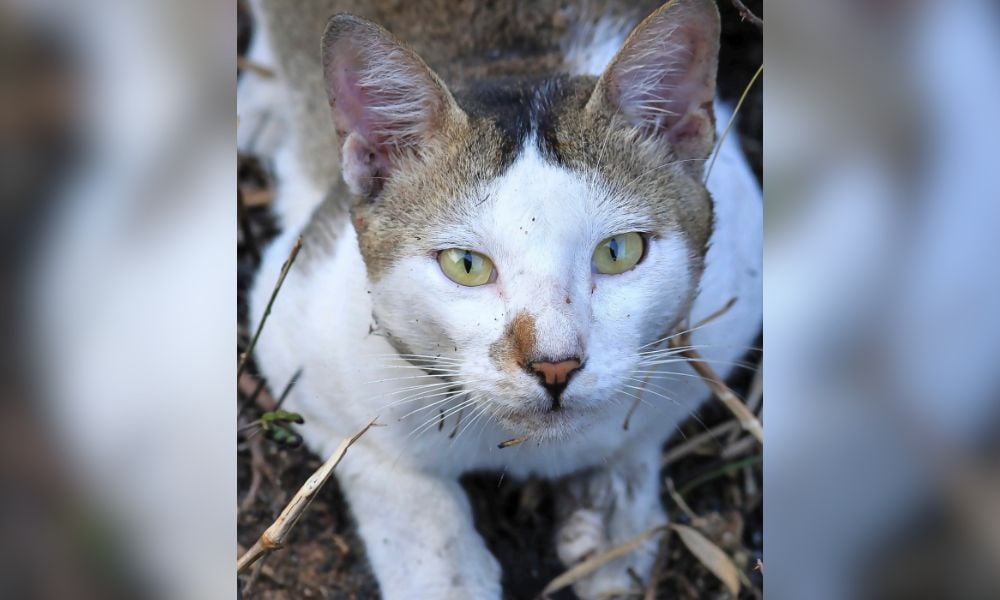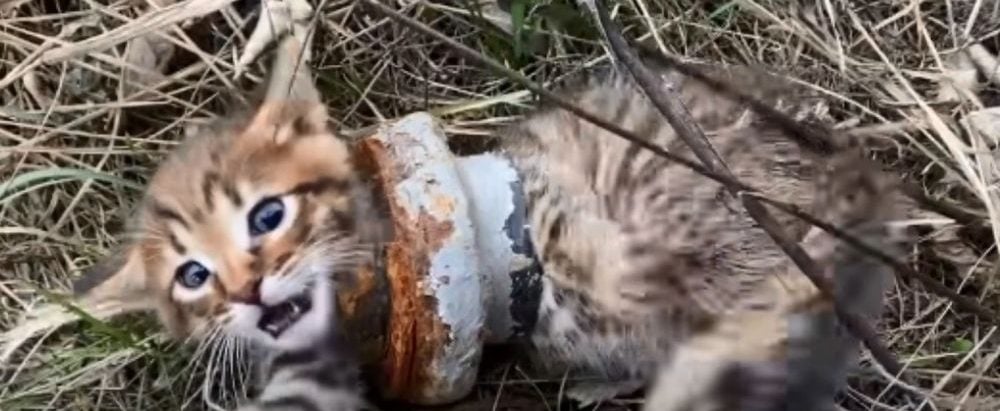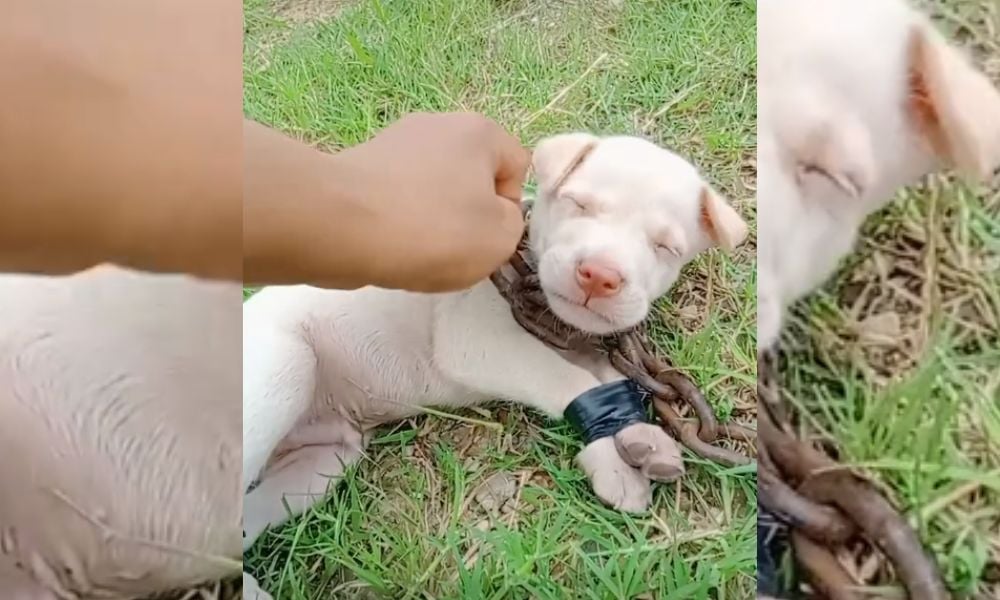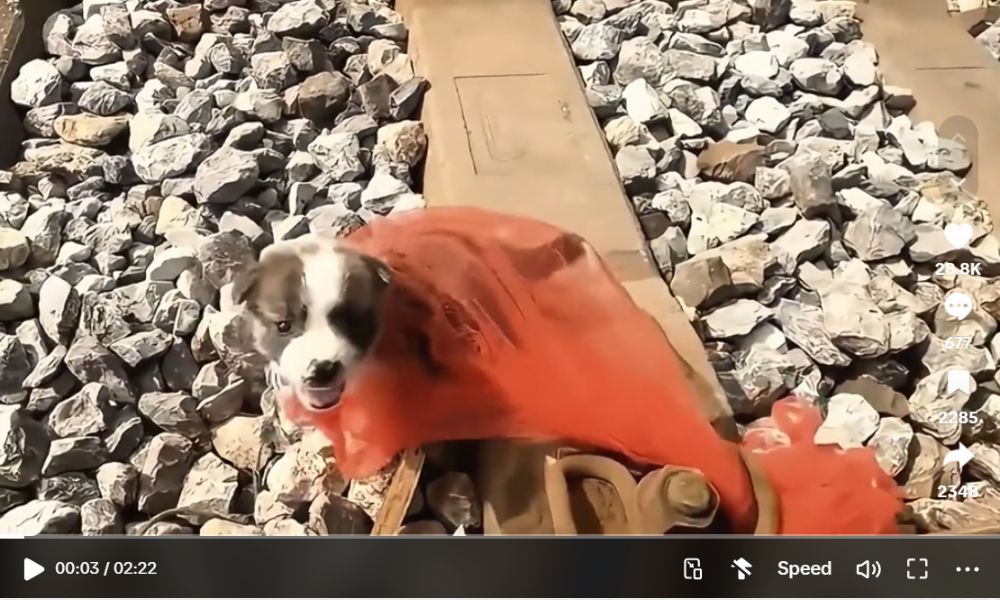Animals are being intentionally placed in harm’s way by content creators pretending to save them, as exposed by a new report from the Social Media Animal Cruelty Coalition (SMACC), which includes Lady Freethinker and other animal protection organizations.
‘Spot the Scam: Unmasking Fake Animal Rescues’ details a horrifying trend online in which creators stage the “rescue” of animals in perilous scenarios – such as being buried alive, attacked by other animals, painfully trapped, infested with “parasites,” or abandoned in life-threatening locations. The report educates the public on how to identify the cruel, deceptive content and what to do if you come across it.
Over the course of six weeks, SMACC documented 1,022 links featuring what appears to be staged animal rescue content; Lady Freethinker contributed 417 of those. Cats were the most featured species – 42% of the videos showed a cat or kittens in peril. Primates followed – including five species of particular conservation concern. Dogs and puppies were the next most commonly featured animals. Snakes and turtle species were also documented in the fake rescue content.
Meta hosted 51.9% of the content on Facebook and Instagram, followed by TikTok (24.4%) and YouTube (23.1%).
605 of the links obtained were watched 572,013,959 times. More disturbingly, 22% of those links appeared organically as suggested content for SMACC researchers with no manual search – suggesting social media platforms’ algorithms are recommending similar abusive content for unknowing users to engage with.
Some of the content also preys on the public by seeking donations: 21% of the content documented in the report solicited money from viewers.
“Fake rescue videos that show puppies, kittens, and monkeys placed in dangerous situations just for the camera are not only cruel to animals, but exploit humans’ compassion, too,” says LFT President and Founder Nina Jackel. “Unsuspecting people who want to help are duped into promoting animal abuse with their clicks as well as their wallets. There’s no excuse for these cruel, deceptive videos to be permitted, and social media platforms must do more to stop their proliferation.”
Over the years, Lady Freethinker has worked tirelessly to remove animal cruelty content from all social media platforms. In 2021, LFT sued YouTube in California state court for allowing the distribution of videos displaying staged torture, suffering, and exploitation of animals. LFT has also documented how animal abuse videos spread on Facebook – from content that masquerades as harmless like “pet” monkey videos to the overt torture of infant animals.
In 2024, LFT took the issue directly to Meta headquarters in a peaceful protest urging them to address the growing issue of animal abuse on the platform. With over half of the content in this report being hosted on Meta platforms it’s clear that the social media platform has a responsibility to remove the content – and prevent it from being posted in the first place. As fake rescue content can be more difficult to decipher as abusive than explicit animal torture, this report determined three top indicators that rescue content may not be legitimate:
- The videos will often have no genuine animal organization associated.
- The scenario is extremely unlikely to be a random encounter caught on camera.
- The accounts or pages sharing the content post numerous other videos with reminiscent story lines, conditions, or even the same animal.
LFT and SMACC are calling on all platforms to take steps to prevent the abuse – including removing the cruel content and improving moderation systems to prevent it from being posted in the first place. It’s also important to remember that watching, commenting, sharing, or otherwise engaging with fake rescue content gives the people behind the camera the views they want. Instead, utilize platforms’ reporting systems to take action against any videos depicting animal cruelty and join us in urging social media platforms to do more to stop the abuse from being posted in the first place.
Please sign and share the petition calling on Facebook to take meaningful action to stop content glorifying the suffering of cats, dogs, monkeys, and other innocent animals.










